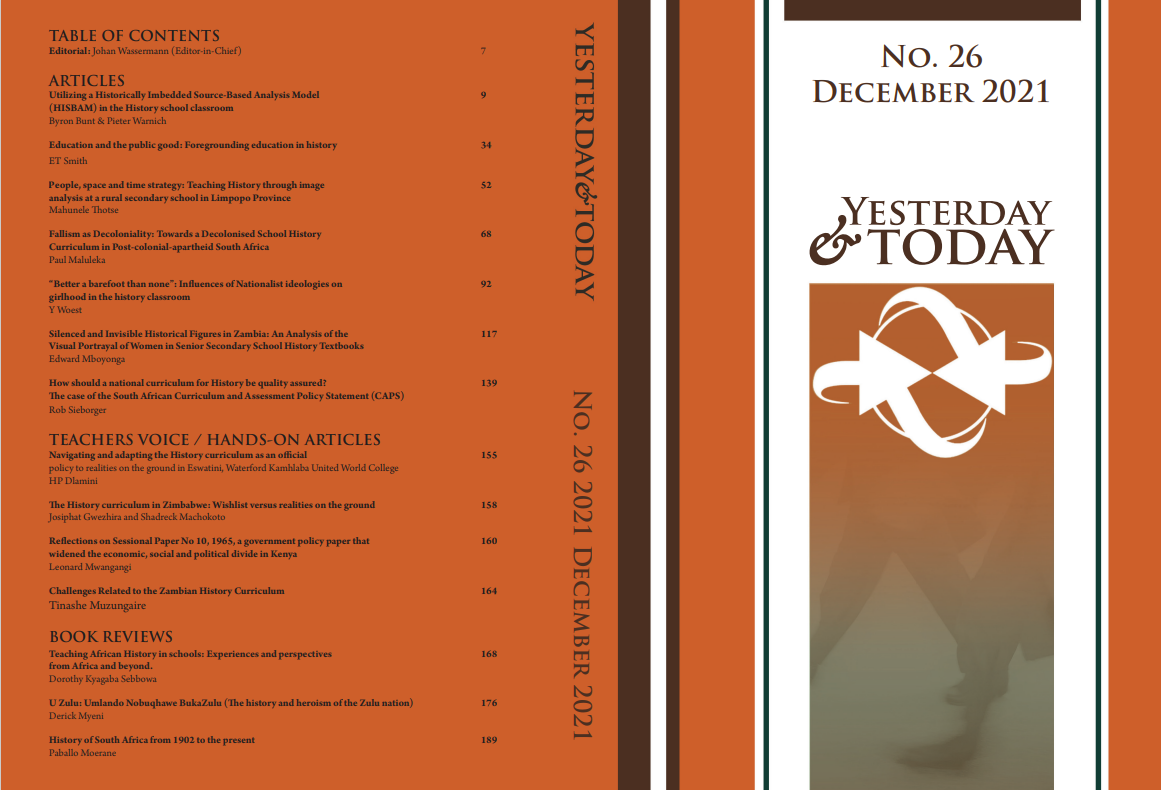Reflections on Sessional Paper No 10, 1965, a government policy paper that widened the economic, social and political divide in Kenya
Keywords:
Kenya, national philosophies, History curriculum, African socialism, Harambee, Nyayo philosophy, three national philosophies, Sessional Paper No 10, 1965, colonialismAbstract
In Kenya, national philosophies are taught in History and Government form 4, unit 27. According to Julius (2011), national philosophies refer to a set or system of ideological beliefs and values which became widely accepted within a particular country. The History curriculum has approved the teaching and learning of three national philosophies: African socialism and Harambee and Nyayo philosophy. This article reflects on African socialism, which is anchored in Sessional Paper No 10, 1965, titled “African socialism and its application to planning in Kenya”. African socialism, as noted by Emmanuel (2012), was born out of the desire by African leaders to create a new society, different from colonial society, which embraced equity devoid of race, oppression and social injustice. Sessional Paper No 10, 1965, aimed at promoting political equity, social justice, human dignity, freedom from want, diseases and exploitation, equal opportunities and high and growing income per capita, as well as equitable distribution of resources and services ( Julius, 2011). Sessional Paper No 10 was built on equity based on African socialism, equity implying fairness, as noted by Shem (2016). The ideas of Sessional Paper No 10, 1965, were acceptable and desirable by every Kenyan, against the backdrop of colonialism where equity was a pipe dream for Africans.


